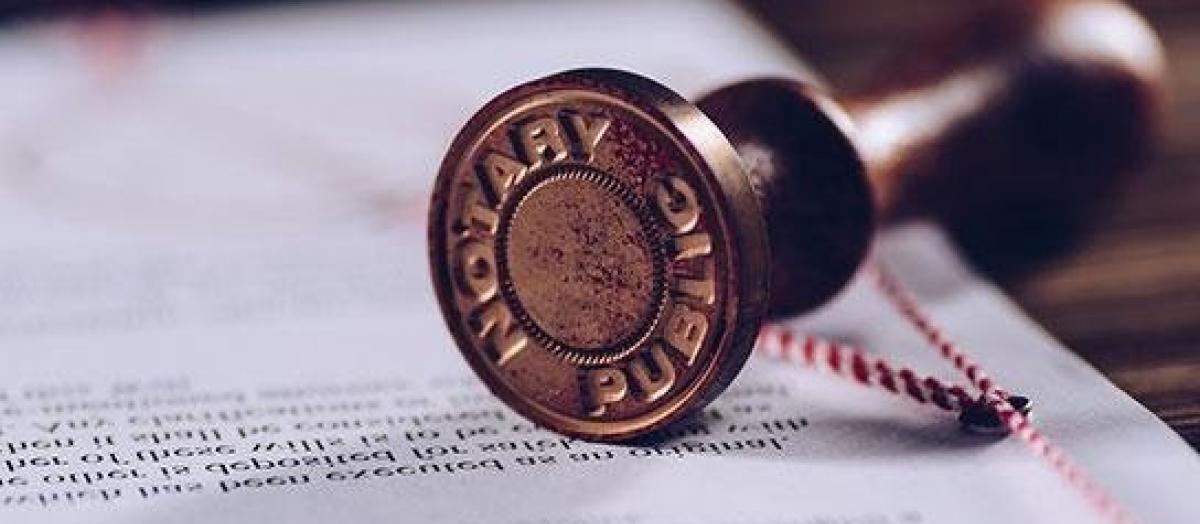Apostille Process Explained: Improving Global File Verification
Apostille Process Explained: Improving Global File Verification
Blog Article
Demystifying Notarial Work: Streamlining the Duty and Relevance of Notaries
In the detailed internet of lawful documentation and verification, notaries stand as pillars of assurance and credibility. Their duty, frequently shrouded in mystery for lots of, brings significant weight in making certain the credibility and honesty of essential files. As guardians of legality and reality, notaries play an essential component in our culture, yet their job is not constantly fully understood. By untangling the complexities dropping and surrounding notarial techniques light on the importance of their acts, a more clear understanding emerges of the important function notaries play in supporting the fabric of contractual and lawful arrangements.
The History of Notarial Work
The background of notarial job days back to old worlds, where scribes played an essential role in recording important info and validating documents. This led to the development of notaries, people appointed by the state to act as neutral witnesses in legal issues.
During the Middle Ages, notaries acquired importance in Europe, with their functions increasing to consist of drafting lawful documents, accrediting trademarks, and protecting documents. The surge of international trade additionally highlighted the relevance of notarial job in verifying contracts and contracts across borders.
In the modern age, notaries proceed to play an essential duty in legal and business transactions by verifying identifications, validating the authenticity of files, and stopping fraudulence. Their function in certifying the legitimacy of arrangements adds a layer of security and depend the ever-evolving landscape of commerce and law.

Obligations and Obligations of Notaries
Notaries play an essential role in confirming the authenticity of files and the identity of notaries. One of their main obligations is to witness the finalizing of vital records, such as contracts, wills, and deeds, to ensure that all celebrations are entering into contracts intentionally and willingly.
Additionally, notaries are charged with administering oaths and affirmations, which are crucial in lawful process and the implementation of sworn statements. They certify copies of original records, giving guarantee to institutions that the copies are real reproductions of the originals. Notaries must preserve precise records of all deals they manage to ensure transparency and liability. On the whole, the obligations and responsibilities of notaries are important in protecting the integrity and legitimacy of different files and deals.
Notarial Certificates and Signatures
Exhibiting precise interest to detail, notarial certificates and signatures act as essential elements in confirming the authenticity of legal papers. Notarial certificates typically consist of critical details such as the day of notarization, the names of the notaries, a summary of the record, and the notary's main seal. These certificates provide a clear record of the notarial act, making certain that the document can be conveniently identified and mapped back to the notary who oversaw the procedure.
Trademarks play a critical function in notarial work, as they symbolize the contract and approval of the celebrations entailed. Notaries meticulously witness the signing of files to validate the identity of the notaries and validate that they are authorizing of their own free will. By fastening their main seal and trademark to the record, notaries my response license that the essential procedures have been complied with which the paper is legitimate and enforceable.
Essentially, notarial certificates and signatures are the characteristic of credibility in lawful purchases, providing guarantee to all celebrations included that the papers are reputable and binding.
Relevance of Notarial Acts

Registration Process Explained
The registration process commonly starts with the specific presenting the paper to a notary public. As soon as the identity is verified, the notary ensures that the specific authorizing the paper does so willingly and without any threat.

Verdict

Notarial certificates normally consist of crucial details such as the day of notarization, the names of the signatories, a summary of the document, and the notary's main seal. These certifications supply a clear document of the notarial act, making certain that the file can be conveniently recognized and mapped back to the notary that supervised the process.
By fastening their official seal and trademark to the record, notaries certify that the required treatments have been followed and that the record is enforceable and legitimate.
By validating the identification of the notaries, confirming their desire to enter into the contract, and accrediting the date and location of the finalizing, notaries play an essential duty in supporting the credibility of legal records.After the record is authorized, the notary will affix their official seal or stamp onto the paper.
Report this page